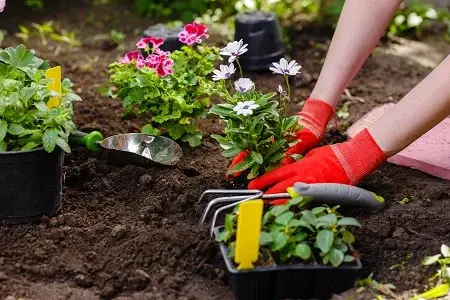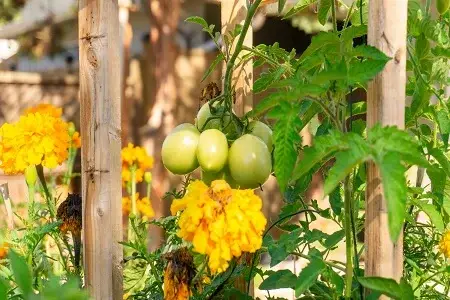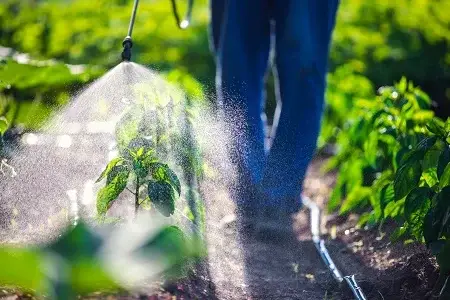How useful is the Organic plant treatment process in gardening?

Organic plant treatment is the process of preparing and caring for a plant using natural methods. The organic method involves different steps and techniques that use only natural and man-made things in preparing the soil before planting. And using biocontrol solutions to protect the plants against pests. Some synthetic pesticides may be harmful to not only the environment, but they also affect our health badly.
The idea of using such natural methods is to preserve not only our environment but these methods are beneficial for our health. The main objective of using an organic plant treatment process is to preserve a balanced ecosystem. A balanced ecosystem is made from interconnected relations of plants, soil, pests, environment and other factors.
The treatment process involves different steps in which a plant’s health is supported by using natural means. Here are some of the steps that ensure the organic plant treatment process:
Preparation of soil
The first step in gardening is to prepare the soil for plantation. When you are growing your plants organically, you need to put natural fertilizer in your soil. Before preparing the soil, you can take different measures to determine the nutrient level and pH of the soil. Once the health of the soil is determined, then you can modify the composition of soil by adding natural fertilisers, organic compost or well-rotted manure. A well-balanced soil can ensure a healthy plantation.
Organic fertilizers
The organic fertilizers used in the organic plant treatment process are well-rotted manure, compost and other organic matter. These organic matters do not affect the environment like other chemicals do. Chemical fertilizers may increase the productivity of plants but it harms the health of the soil in longer periods. Whereas, using organic fertilizers is beneficial for the health of soil.
How Crop selection helps in the process
When planting a crop, it is important to select the crop according to environmental conditions. Some crops do better in certain conditions and environments. Geography has significance in choosing a crop. Certain crops may do better in certain areas and certain environments. Choosing a crop is important to increase productivity and avoid financial loss.
Importance of Crop rotation
The same crop on the same soil can reduce productivity. In the organic plant treatment process, it is essential to rotate crops. Crop rotation can increase the water absorption capacity of soil. This method works as an organic treatment for crops. This process also interrupts the cycle of disease and pests related to a certain crop. This increases the organic material from root structures of different crops and increases the biodiversity of the farm.
Is Companion planting useful?
The organic process involves certain plants growing together within close proximity to each other. The idea is that these plants will support each other growth. Some plants may use less water and nutrients than other plants, by companion planting these plants can grow without affecting each other’ health. This companion planting is a very useful approach that was used by home gardeners earlier. But it has been widely accepted by more farmers due to its increased benefits.
Through companion planting, the growth of plants is supported by each other’ natural properties. This requires less need to use chemicals for nutrients and other pesticides for the treatment process.
Organic pesticides 
Different types of pests affect the health of a plant. Pests involve weeds, insects, rodents and diseases that can limit the growth of plants. Farmers use different methods to fight these nuisances. Some methods involving chemicals are harmful to the environment and can affect the health of soil in the long run. It is the best practice to use such methods that are environmentally friendly. Organic pesticides involve methods that use chemical-free materials to control the growth of weeds and kill insects.
some organic pesticides for treatment include vegetable oil spray, soap spray, neem oil spray, garlic spray, and tomato leaf spray.
To control the pest population, some environment-friendly bugs are introduced in crops. These bugs include ladybugs, lacewings, predatory beetles etc. These bugs are beneficial to the health of crops as they kill the insects that are harmful to the crop and control the growth of weeds.
Natural control
when a crop benefits from environmental factors and useful bugs like ladybugs and predatory beetles, it is known as natural control. The organic treatment occurs with or without the knowledge of a man and is useful for the health of crops.
Biological control
This method involves humans purposely using pathogens like fungi or viruses to control the pests in a crop. The ultimate purpose of using such a method is to enhance nutrient levels and productivity.
Endophytic and epiphytic fungi are helpful in the process of biological control as it enhances the nutrient absorption capacity of soil
How Water management affects the organic plant treatment process 
Water plays a fundamental role in the production of crops. When water is scarce, it imposes a negative impact on the productivity. Efficient water management techniques like water irrigation, dripping or soaker hoses can reduce the wastage of water.
Using techniques like mulching around your plants may prove helpful as it helps plants retain moisture. The method of mulching improves the organic treatment process as it regulates soil temperature and controls the growth of weeds.
How to prevent plant disease using organic treatments
The traditional method to control diseases is avoidance. Using such techniques that aid in the growth and control of pests enhances the survival ratio of a plant. Organic treatment can enhance the immunity of a plant through its important role in the biological properties of soil.
Keeping plants at a safe distance from each other can help prevent the disease. When there is enough space available between plants, it promotes adequate air circulation and reduces the risk of diseases.
How to manage plant disease using organic treatments
Various methods are present to manage plant diseases. It is based on the biodiversity of soil health by rotating the crops. The disease is driven by pathogens, climate conditions and planting patterns. It is advised to grow native crops and plants that are resilient to local diseases.
Organic treatment practices like copper sprays and sulphur can induce resistance against some diseases.
Early detection of disease also helps in managing the health of a plant and doing so can prevent them from using synthetic chemicals.
How Monitoring aids in organic process
Keeping a close eye on your plants can be beneficial because if there are any growing issues or diseases, they can be quickly resolved. Regular monitoring can save your plant from disease spreading and pest infestations. If there is any rising issue like rot and decay, it can be dealt quickly.
Knowledge is power
Learning about the health of your plant and understanding issues related to the growth of your plants is important. There is a growing trend in organic farming in the world, so it has become easier to gain information about organic processes and adopt them in your home gardening techniques. Relevant literature is available on organic gardening to advise anyone interested in using these techniques.
Continuous improvement is necessary to understand the sustainability and natural methods for plant care.
Conclusion
In conclusion, the organic plant treatment process represents the process of using all-natural remedies to take care of a plant’s health. These natural remedies can include homemade pesticides which contain elements that are beneficial for plants and the environment. By following the process discussed above farmers and home gardeners can sustain the growth of their plants. And they can avoid using synthetic chemicals that are harmful to the environment.
Overall, the principles of the organic treatment process align with environmental responsibility and sustainability. It ensures a healthier ecosystem and reduces the impact of gardening and agriculture on the environment.









